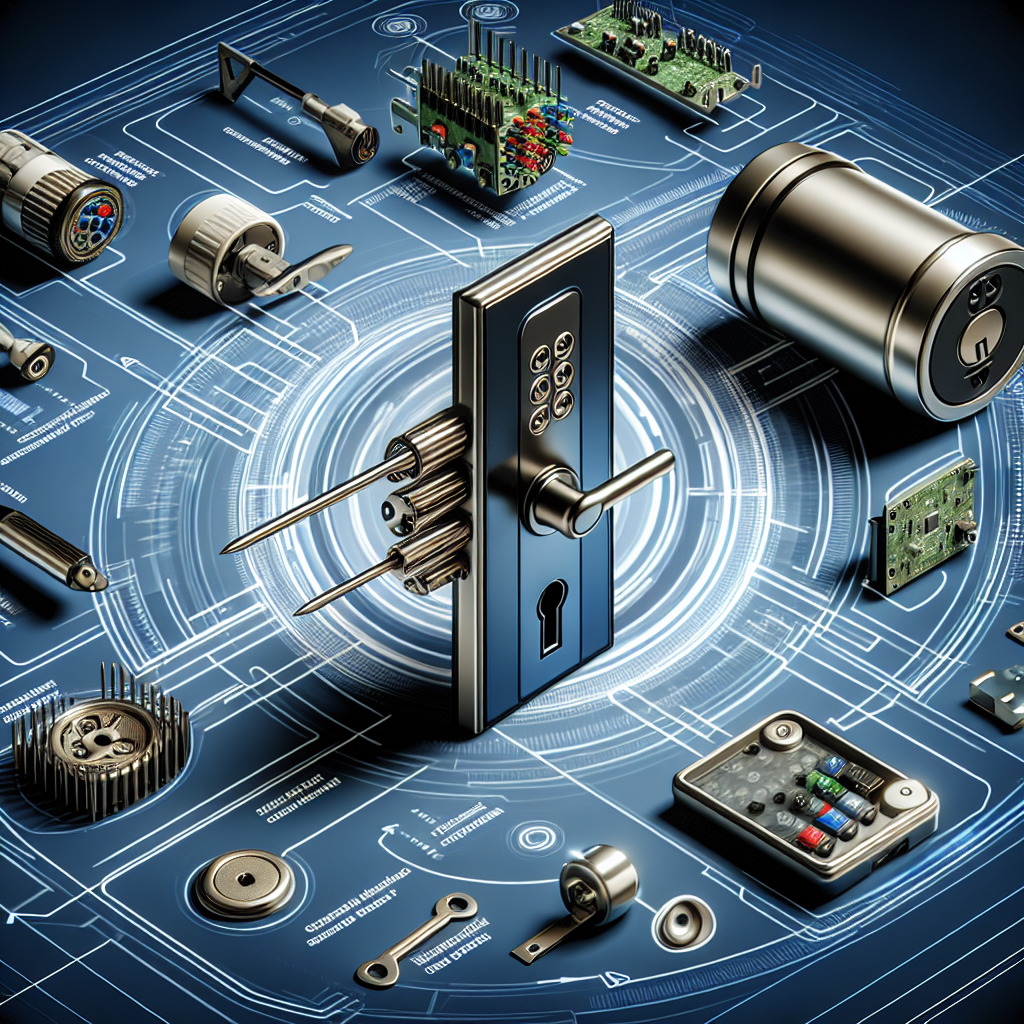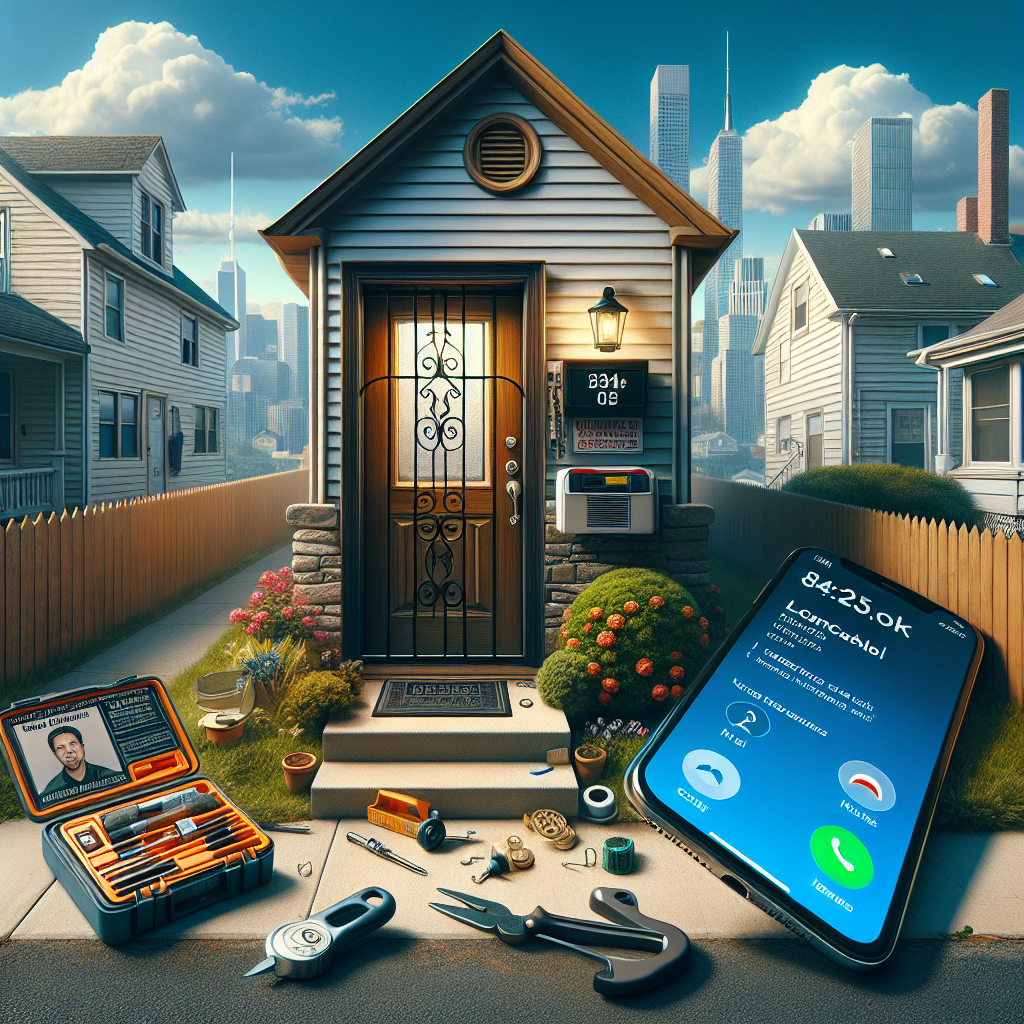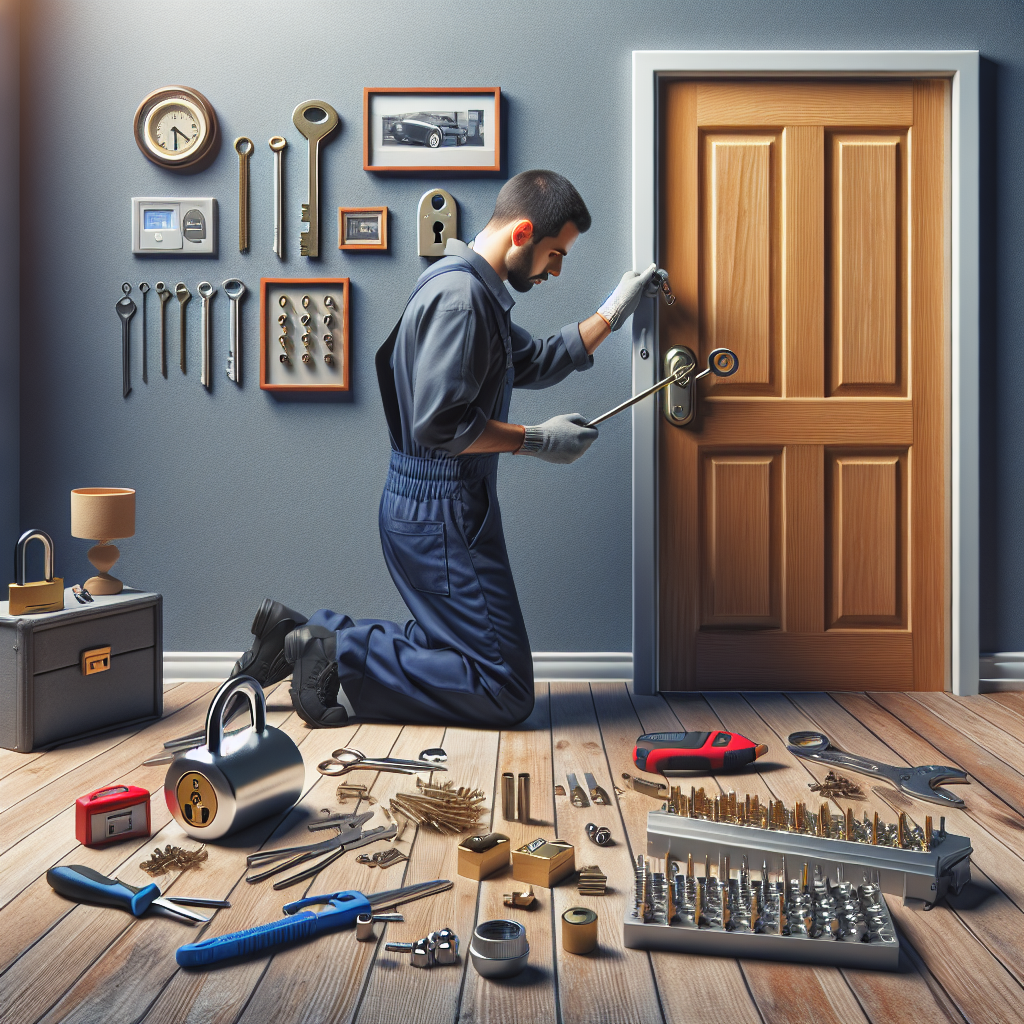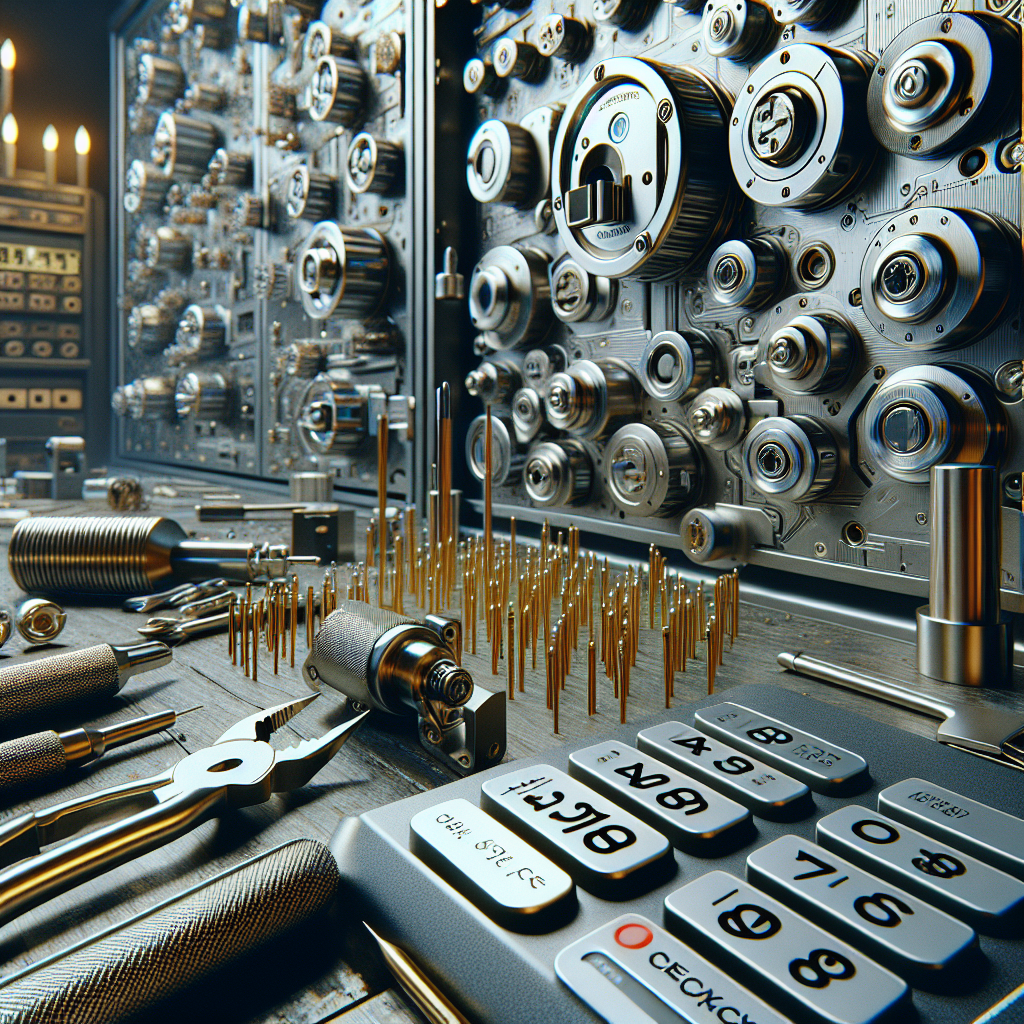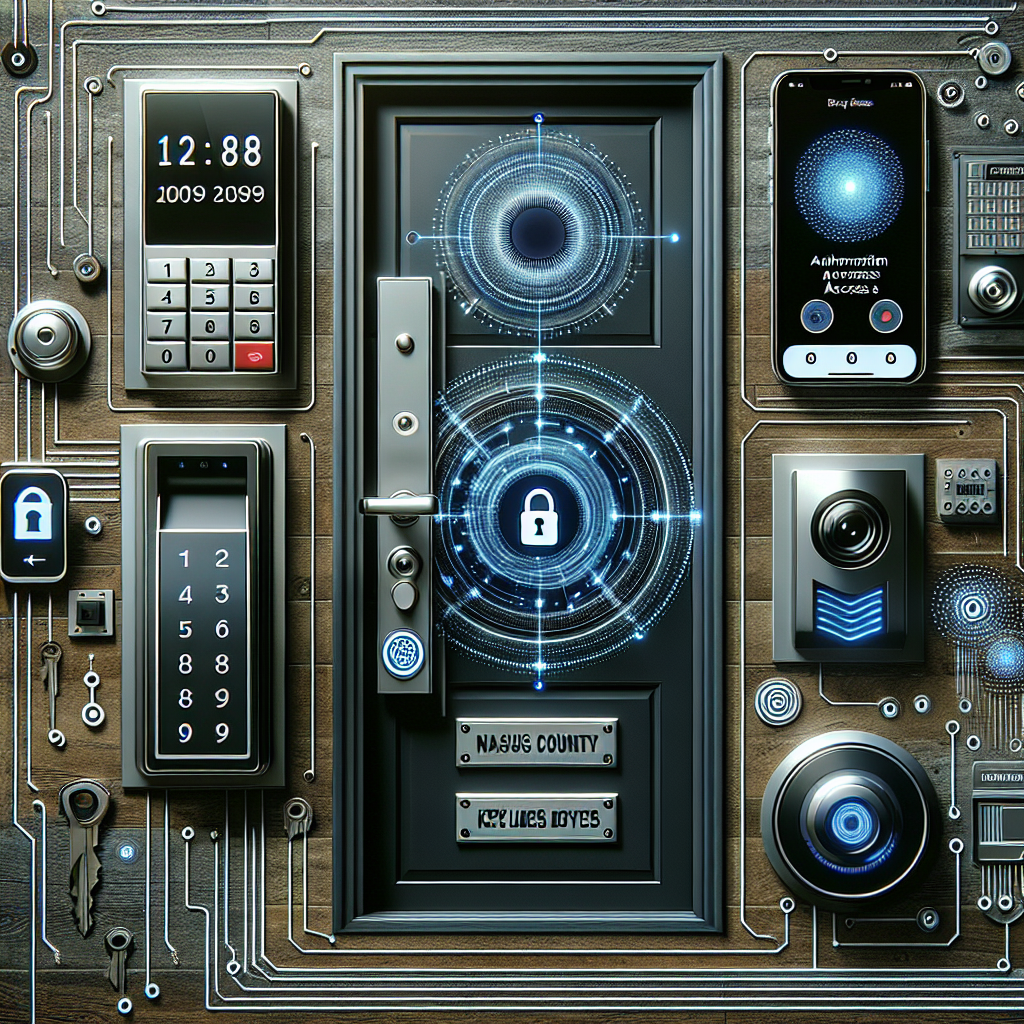When considering the security of your home, door locks might not be the first feature that springs to mind, yet they are fundamental to the sanctity of any domicile. At its core, a door lock is a mechanical or electronic fastening device that is released by a physical object (such as a key, keycard, fingerprint, or security token) or by supplying secret information (like a keycode or password), serving as the first line of defense against unwelcome intruders. Hempstead, a name renowned for security and reliability in lock production, offers an array of locking mechanisms ranging from traditional deadbolts to high-tech smart locks, each uniquely designed to cater to homeowners’ diverse preferences and safety requirements. These locking solutions not only secure your personal space but also reflect your lifestyle, with advanced features that go beyond basic functionality to include elements such as connectivity to smart home systems and decor-enhancing aesthetics.
As you navigate through the multitude of options available in the Hempstead collection, it’s important to recognize the significance of material strength, lock type, installation complexity, and integration capabilities with other home security systems. In the subsequent parts of this guide, we will delve into the critical aspects of choosing the right door lock for your home, from understanding the nuances of lock grading to exploring the revolutionary world of biometric systems that promise both convenience and uncompromised security. We aim to arm you with the essential insights necessary to make an informed decision that aligns with your personal safety strategy and design sensibilities. Continue reading to uncover the key takeaways and make the journey toward enhancing the security of your home a more manageable endeavor.
Key Takeaways
1. Security Grade Matters: The guide emphasizes the importance of selecting a door lock that has a ANSI/BHMA security grade rating. Grade 1 locks offer the highest level of security and durability, suitable for commercial properties, while Grade 2 is often adequate for residential use. Homeowners should avoid Grade 3 locks, as they provide minimal security and are more susceptible to breaches.
2. Lock Type Makes a Difference: The Hempstead’s Guide outlines several types of door locks, including deadbolts, knob locks, lever handle locks, and smart locks. Each serves different purposes with varying levels of security. Deadbolts are a popular choice for exterior doors due to their resistance to forced entry. Smart locks provide convenience with features such as remote access and temporary codes, but their digital nature may introduce different security considerations.
3. Consider the Door Material: The compatibility of the lock with your door material is crucial. For instance, not all locks can be installed on metal doors or doors with narrow stiles. Homeowners should verify that the lock they choose can be properly fitted on their specific door type to ensure it functions correctly and provides the necessary security level.
4. Aesthetics vs. Functionality: The guide encourages homeowners to consider the balance between the lock’s aesthetic appeal and its functionality. While it might be tempting to choose a lock based on design alone, it’s essential to not compromise on security features. Locks come in a variety of styles and finishes, and finding a secure lock that complements your home’s aesthetic is possible with proper research.
5. Key Control and Rekeying Features: Key control, or the ability to control who has copies of your keys, is a feature to look for in a lock. Some locks offer patented keys to prevent unauthorized duplication, adding another layer of security. Additionally, certain locks have rekeying technology that allows homeowners to easily change the key that operates the lock without replacing the entire locking mechanism, which can be useful in situations like losing a key or after a change in tenancy.
What Are the Best Door Locks for Your Hempstead Home?
Understanding Different Types of Door Locks
When selecting door locks for your home, it is crucial to understand the different types available. The most common types include deadbolts, knob locks, lever handle locks, and smart locks. Deadbolts are known for their strength and are often used as an additional layer of security. Knob locks are commonly installed on interior doors, while lever handle locks are easier to open, making them suitable for homes with elderly or disabled individuals. Smart locks offer advanced features like remote access, but their digital nature may be susceptible to cyber threats.
Evaluating Lock Security Grades
Lock security grades are determined by the American National Standards Institute (ANSI). There are three grades to consider, with Grade 1 being the highest level of security, typically used in commercial settings. For residential use, Grade 2 offers a good balance of security and cost, although Grade 1 locks can also be considered for exterior doors. Grade 3 locks are more common in interior doors and provide minimal security.
Key Considerations for Lock Material and Finish
The material and finish of your door lock do not just contribute to its appearance but also its durability. Common materials include brass, bronze, steel, and zinc alloy, each offering different levels of strength and resistance to corrosion. In coastal areas like Hempstead, it’s vital to choose materials that can withstand salt air and humidity to prevent rust and degradation.
Lock Installation and Compatibility
Proper installation is as important as the lock you choose. Ensure that your door is compatible with the lock you select, meaning that the lock fits within the existing cutouts and aligns correctly with the door frame. Professional installation is recommended, particularly for higher-grade locks, smart locks, and if modifications to the door are necessary.
The Role of Smart Locks in Home Security
Smart locks offer convenience through features such as keyless entry, remote locking and unlocking, and integration with home automation systems. Some smart locks also provide logs of lock activity, which can be used to monitor access to your home. However, smart lock users must be aware of potential cybersecurity risks and should ensure their home network is secure.
Lock Maintenance and Upkeep
Regular maintenance of your door locks is essential to ensure they continue to function properly and provide the intended level of security. This includes cleaning, lubricating the lock mechanism, and checking for wear and tear. It’s also a good practice to rekey locks if keys are lost or theft is suspected.
Choosing a Locksmith for Professional Advice
A trustworthy and experienced locksmith can be invaluable when choosing the best locks for your home. They can provide personalized recommendations based on your specific security needs, the style of your home, and the local environment in Hempstead. Consider consulting a locksmith before making your final decision.
Cost Versus Quality in Door Lock Selection
While cost is an important factor, it should not be the only consideration when selecting door locks. Investing in higher-quality locks may seem expensive upfront but can provide better security and last longer, which may lead to cost savings over time. Weigh the price against the lock’s security features, material quality, and warranty.
How Do I Maintain Home Security with Reliable Locks?
- Regularly inspect locks for signs of wear or damage and address issues promptly.
- Consider updating your locks every few years to benefit from advancements in lock technology and security.
- If opting for smart locks, keep the software up to date to protect against vulnerabilities.
- Rekey locks after moving into a new home or if you suspect that your keys have been compromised.
- Consult with a professional locksmith for the installation of high-grade locks and for security assessments.
What Are the Different Types of Door Locks Available?
There are several types of door locks to consider, including traditional deadbolts, electronic smart locks, knob locks, lever handle locks, and padlocks. Each type offers varying levels of security and convenience, catering to different needs and preferences.
How Do I Determine the Security Grade of a Lock?
The ANSI/BHMA grading system is used to determine the security level of a lock. Grade 1 offers the highest level of security, followed by Grade 2, and Grade 3. It is essential to consider the grade when choosing a lock, especially for exterior doors.
Can I Install a New Door Lock Myself?
Many door locks come with DIY installation kits and are designed for easy installation. However, if you are not comfortable with DIY tasks or the lock requires complex installation, it may be best to consult a professional locksmith.
What Should I Consider When Choosing a Lock for My Front Door?
For your front door, you should prioritize security and durability. Look for a lock with a Grade 1 or Grade 2 rating and features like bump resistance and pick resistance. Aesthetics are also important as the front door serves as an entry point to your home.
Are Smart Locks a Good Investment for Home Security?
Smart locks offer convenience with features like remote access, user code sharing, and integration with home automation systems. They can be a good investment for those who value convenience and modern technology. However, ensure the lock has robust security features as well.
How Do I Choose a Lock for Interior Doors?
Interior door locks typically do not need to be as secure as exterior locks. Privacy locks are common for bedrooms and bathrooms, offering basic locking capabilities without the high security features needed for front or back doors.
Is It Possible to Key All My Home Locks Alike?
Yes, many lock manufacturers offer the option to key all your locks alike, so one key opens all the doors. This is known as ‘keying alike’ and can be a convenient option for those who do not want to carry multiple keys.
What Is the Difference Between a Deadbolt Lock and a Spring Bolt Lock?
Deadbolt locks offer a higher level of security as they require a key or knob to open and cannot be easily forced open. Spring bolt locks use a spring to hold the bolt in place and can be vulnerable to tampering. Deadbolts are generally recommended for exterior doors.
How Can I Enhance the Security of My Existing Door Locks?
Enhancing existing door locks can involve adding strike plate reinforcements, upgrading to a higher security grade lock, installing additional locks like chain locks or bars, and ensuring your door frames and hinges are strong and secure.
Should Lock Aesthetics Influence My Choice?
While security should be the main consideration, the aesthetic appeal of a lock can also be important, as it contributes to the overall look and feel of your home. Try to balance the visual aspect with the lock’s security features to find a lock that fits both your safety and style needs.
Final Thoughts on Choosing Door Locks for Your Home
Choosing the right door locks for your home is an important decision that affects both your security and daily convenience. Hempstead’s Guide to Choosing Door Locks for Your Home emphasizes the need to consider the lock type, security grade, installation process, and unique needs like smart technology integration. It’s essential to be informed and make choices that align with your specific security requirements and lifestyle preferences.
Whether you opt for a high-tech smart lock or a sturdy, traditional deadbolt, the ultimate goal is to feel safe and secure within your home. Keep in mind that investing in quality locks can not only deter potential burglars but also provide you with peace of mind, knowing your home is well-protected. Remember, when it comes to home security, it’s better to be proactive than reactive.

